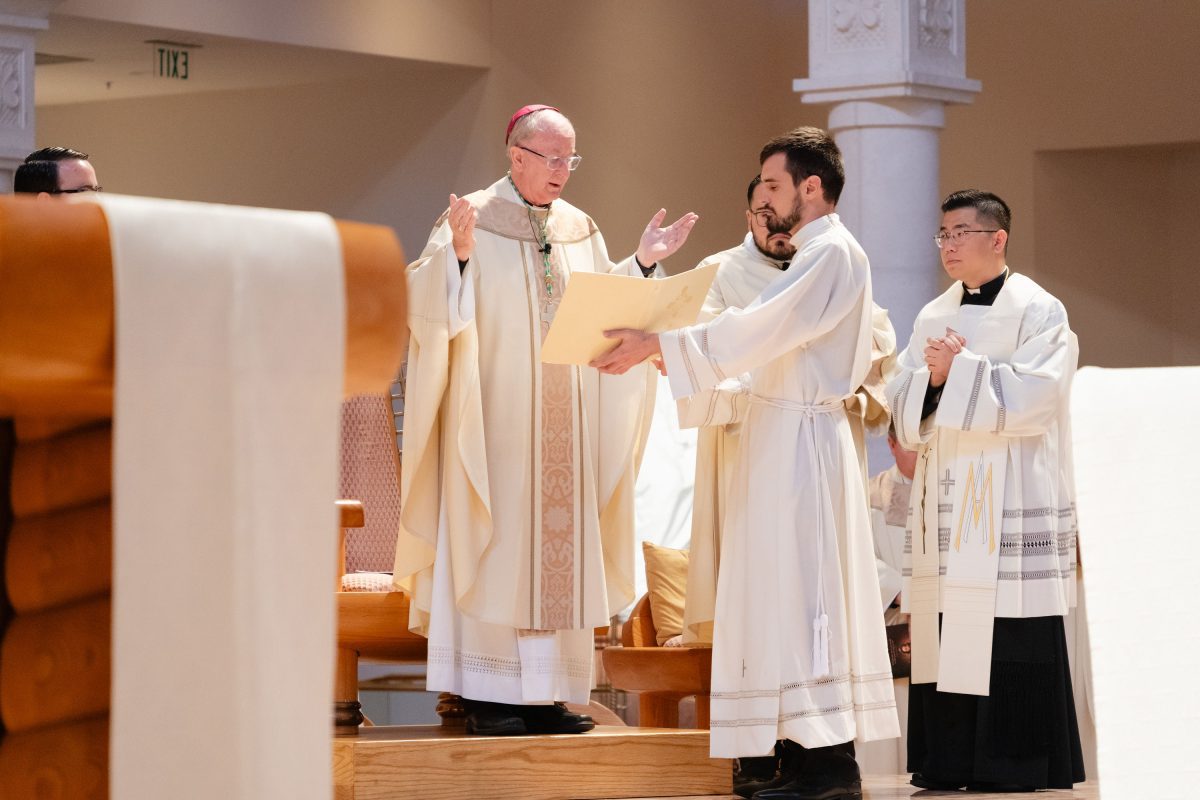My Sisters and Brothers in Christ:
The Acts of the Apostles describe the life of the disciples after Jesus died and is resurrected. As they become one community of faith, they also share confusion and discouragement. They question what happened to Jesus as the community questions them and persecutes them because of their faithfulness.
Today, on the Second Sunday of Easter, we find the disciples locked away and alone for fear of persecution. You may know what that feels like; when you believe something, but know your belief is rejected by others and you may fear reprisal. Sometimes, as we express our faith, we find the world sits in disbelief and we may feel isolated and alone. Jesus saves us through His Incarnation, by taking on a human body. He joins His divinity to a human body. He takes on our appearance so that we might believe, and He dies in that body and rises in that body.
In that body, Jesus appears to the disciples, but Thomas is not present. Thomas wants to believe but needs proof. Jesus appears again and Thomas professes his faith. Jesus remains with us in the Eucharist, His beautiful Body comes to serve us each time we choose to receive.
In the Gospel, we, like the apostles, capture glimpses of Jesus as He comes in His resurrected form to assure us. Often, His greeting to the apostles is, “Peace be with you!” What is this ‘Peace’ of which he speaks? What is He offering to us?
It is the Peace of forgiveness. As Jesus was crucified and His body resurrected, he came to grant us Peace, the Peace which we can only experience through forgiveness.
This forgiveness is the root of the tree of life. God offers this complete forgiveness to us and then asks us to extend it to each other.
Peace is more than a lack of conflict. Peace, or in Hebrew, Shalom, means literally “right relationship.” The gospel calls us to be peacemakers: that we live in right relationship with others, ourselves, and God.
As faith-filled Christians we are in love with God. Love is a noun and a verb; it moves us into action. The Mass binds us to love God by acting against injustice, violence, war, prejudice—anything and everything that gets in the way of our loving one another. We go forth to act as priests, making God present to the world. We go forth to act as prophets, speaking on behalf of the oppressed and bringing hope to those in despair. We go forth to act as kings, serving and protecting the vulnerable and providing for the needs of others. We leave Mass recognizing that Jesus is present in the poor, the sick, and the imprisoned who we encounter each day.
Today, are we confused about the presence of Jesus? Jesus is within each one of us and yet we do not see Him present. Cardinal Raniero Cantalamessa, OFM writes in one of his homilies, “We must make our lives a gift of love to the Father for the good of our brothers and sisters. We must make ourselves a Eucharist.”
Jesus returned to be sure Thomas knew Him. He is present for us each time we receive the Eucharist. Like the disciples, we are called “go in peace,” a wondrous gift; yet incredible challenge. We are called to be holy—in the words of Peter’s epistle, a people “of His own.” To offer Peace, to go in Peace means that we leave the altar of the Lord and bring forth the table of the Lord in our daily living; that we have the intention to announce His praises, to make God’s Peace happen in our daily lives.
May our belief grant us life in His name that we may offer His Peace.

